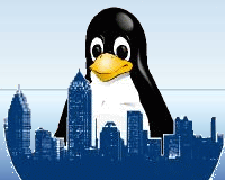ALE-NE – Thursday Oct 5, 2006 – VIDEO of Lawrence Lessig Talk given during Linuxworld – 7:30PM EST
In this months meeting we will feature a video from Lawrence Lessig
Professor of Law, Stanford Law School.
In this keynote from Linuxworld San Francisco, Professor Lessig
describes what he calls the new era of “Read/Write Culture” we live in. He talks
about the technical (Opensource), Political (copyright laws), and
social changes we are trying to catch up with.
Professor Lessig shows that the struggles and the threats of this new
world are largely parallel. The solutions need to be parallel as well.
=======================
Lawrence Lessig is one of the most engaging speakers you will ever see.
His examples and explanations of the complicated issues of Copyright,
Economics and Technology are something you can take with you to any
suit, boss, or politician you will meet.
–Marc Torres
Lawrence Lessig’s bio
========================
Lawrence Lessig is a Professor of Law at Stanford Law School and
founder of the school’s Center for Internet and Society. Prior to joining the
Stanford faculty, he was the Berkman Professor of Law at Harvard Law
School, and a Professor at the University of Chicago. He clerked for
Judge Richard Posner on the 7th Circuit Court of Appeals and Justice
Antonin Scalia on the United States Supreme Court.
Professor Lessig represented web site operator Eric Eldred in the
ground-breaking case Eldred v. Ashcroft, a challenge to the 1998 Sonny
Bono Copyright Term Extension Act. He has won numerous awards,
including the Free Software Foundation’s Freedom Award, and was named one of
Scientific American’s Top 50 Visionaries, for arguing “against
interpretations of copyright that could stifle innovation and discourse
online.”
Professor Lessig is the author of Free Culture (2004), The Future of
Ideas (2001) and Code and Other Laws of Cyberspace (1999). He chairs
the Creative Commons project, and serves on the board of the Free Software
Foundation, the Electronic Frontier Foundation, the Public Library of
Science, and Public Knowledge. He is also a columnist for Wired.



